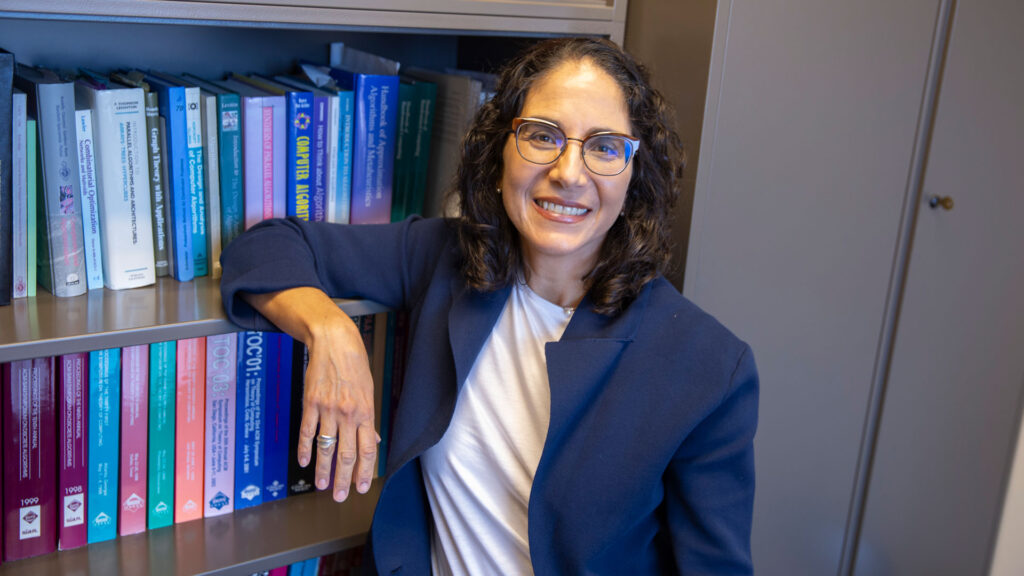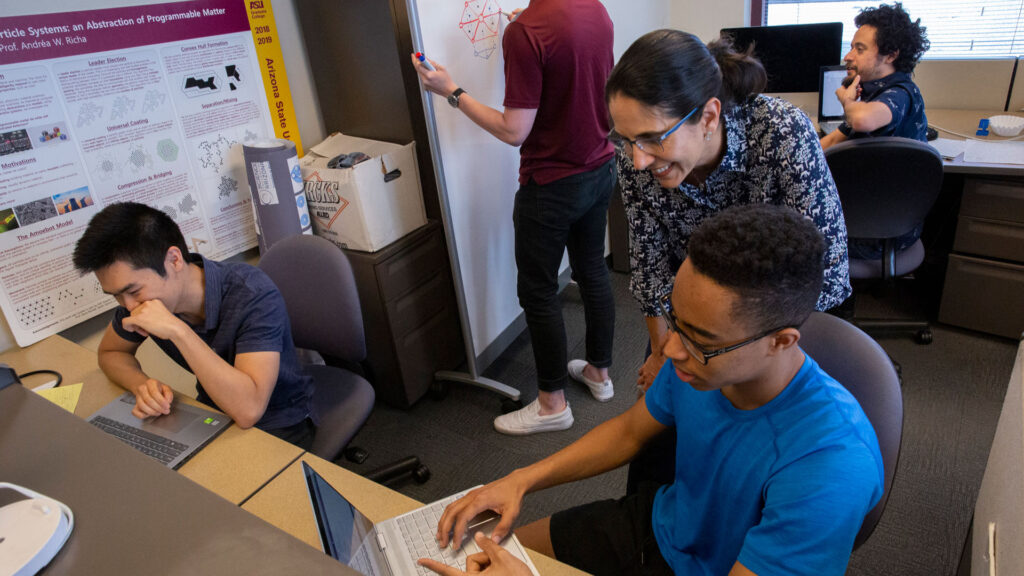Q&A with faculty mentor Andréa Richa
Posted on: March 26, 2024
Posted on: March 26, 2024
Andréa Richa is an ASU President’s Professor in the School of Computing and Augmented Intelligence. Her research focuses on distributed and network algorithms and many other facets of computing, including self-organizing particle systems and bio-inspired computing. During her time at ASU, Richa has worked with more than 20 undergraduate students, many of whom have been supported by the Fulton Undergraduate Research Initiative and other research grants.

What made you want to get involved as a FURI faculty mentor?
While I got involved in undergraduate research and FURI early on, it was only about 10 years ago that I decided to pursue undergraduate research at a more integrated scale with the graduate students in my lab. This had a positive impact on both the undergraduates’ education and on my graduate students because the undergrads add a more dynamic and diverse component to the group.
The FURI program is amazing and provides Fulton Schools students with a unique and prestigious opportunity of being funded to do research in a structured and supportive environment as an undergraduate. I have seen the FURI program evolve and grow through my many years at ASU to provide more and better opportunities for a larger number of students as the Fulton Schools grew.
What is your favorite part about seeing your students conduct research?
My favorite part is to see them grow and feel the excitement of producing something new, something that no one has done before.
How have your FURI students had an effect on your research? Have they come up with any research surprises or proposed new directions for your lab?
My FURI students have been an integral part of the research in my group, often coming up with original ideas that we put into practice. They complement my doctoral students’ research in several ways, from developing new simulators for our lab — such as our dynamic network simulator — to working in theoretical concepts. Often, when simulating the distributed algorithms we develop, the undergraduate students find surprising and unexpected behaviors, which lead them to revise the algorithms.
How has the experience been rewarding for you?
I have been lucky to have had outstanding FURI undergrads working with me. I have seen the outstanding undergraduate researchers I mentor grow through their research work, receiving several awards and recognitions in the process. Many of them went on to pursue a PhD after graduation, both at ASU and at other prestigious universities such as Stanford and Carnegie Mellon University. Others pursued great industry opportunities at Intel, Google, Amazon, Qualcomm and more. They all participated in highly interdisciplinary research and regularly published in highly prestigious and high-impact peer-reviewed venues in computer science. Some of their work was also featured in popular media articles at Quanta Magazine, ACM Tech News and MIT Technology Review, to name a few.
What advice would you give to students who might be interested in participating in FURI or MORE?
Go for it! It is certainly an enriching and prestigious experience, and it allows you to get paid to figure out what research is all about. Talk to your professors to see who would be willing to advise you on a FURI or MORE project, and make sure to carefully follow all the guidelines for your application.
Why should other faculty members become FURI or MORE mentors?
The FURI program is a wonderful way to get undergraduate students interested in research, providing an enriching and structured experience to the students culminating in the Fulton Forge Student Research Expo. It is a great way of getting our undergraduate students supported for their research.

Andrea has been amazing at guiding me through the process of publishing papers. She is incredibly inclusive and learning under her has been very inspiring. I have a very deep interest in staying for further education now from the experiences I have gained being in the FURI program.
Peter VargasComputer science FURI student